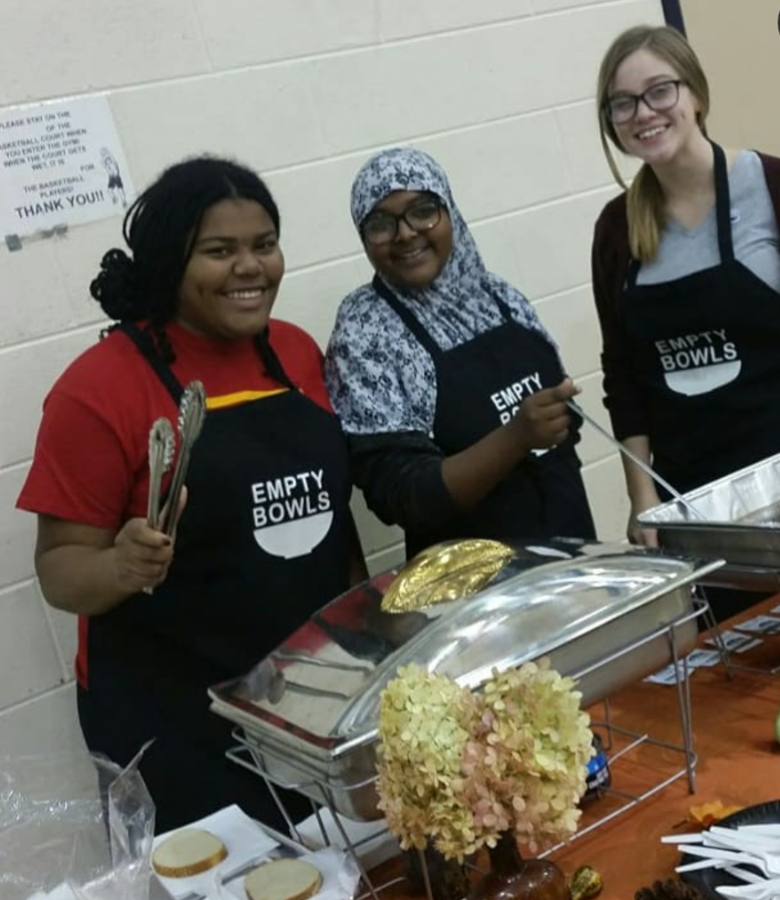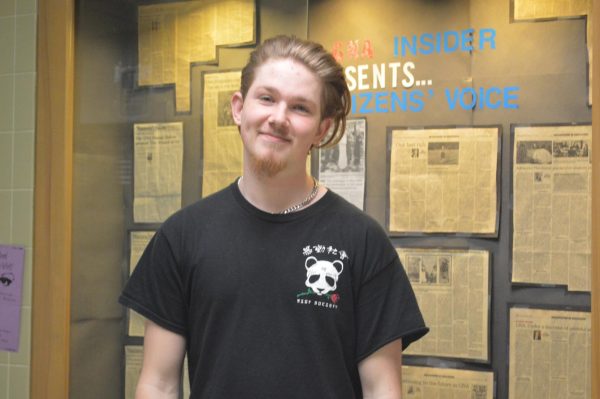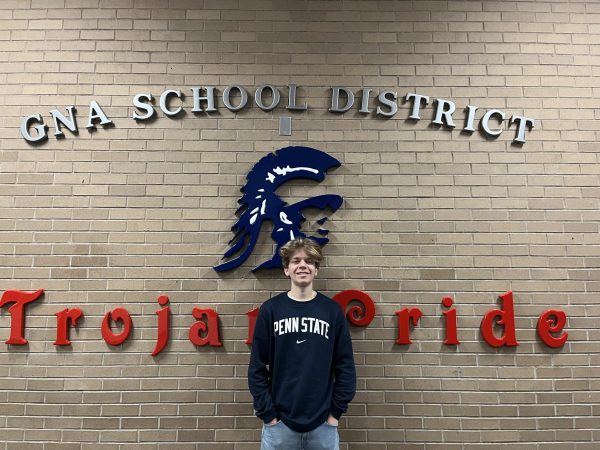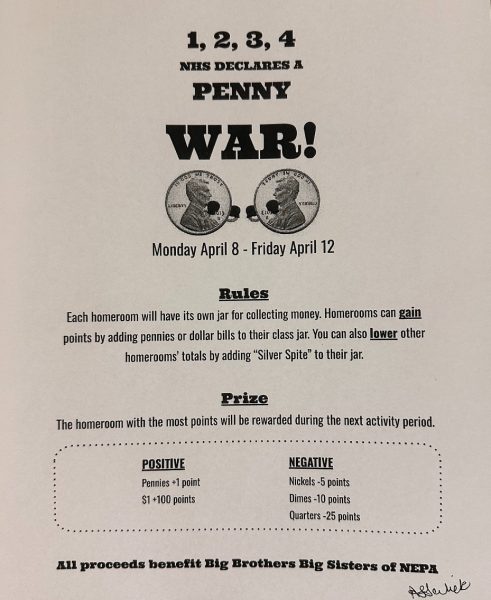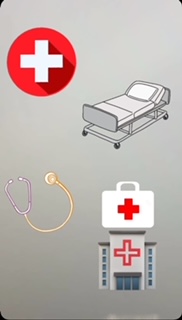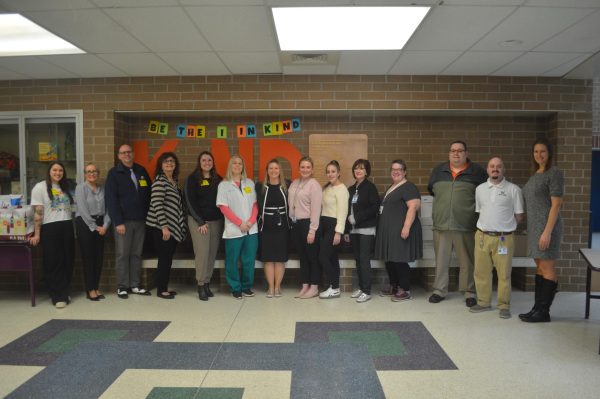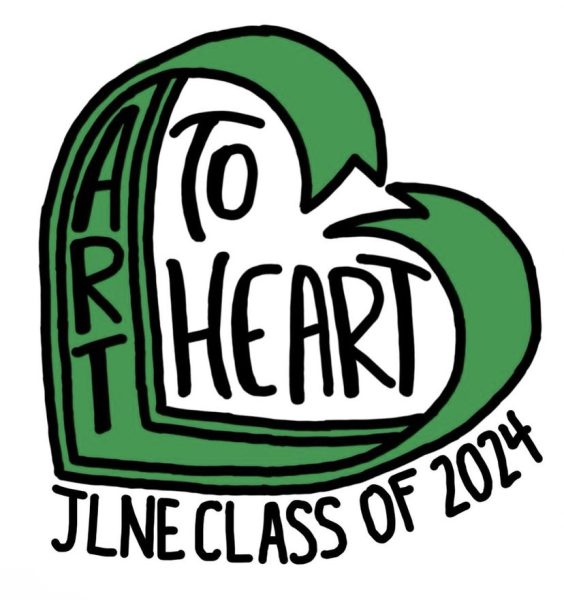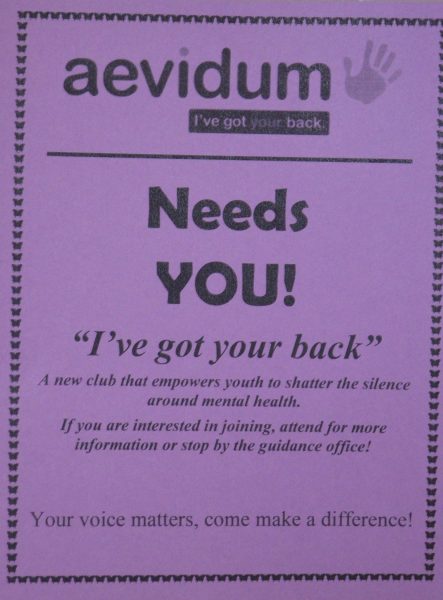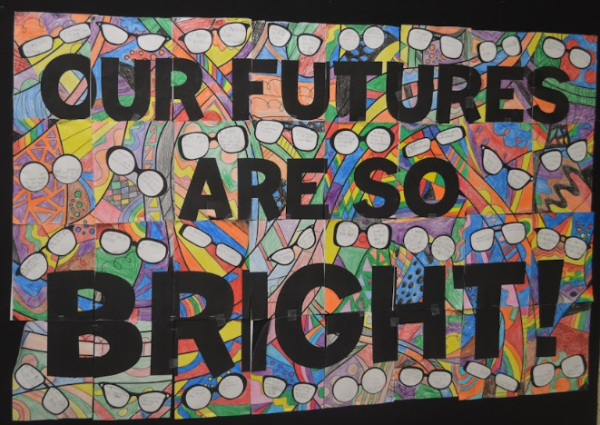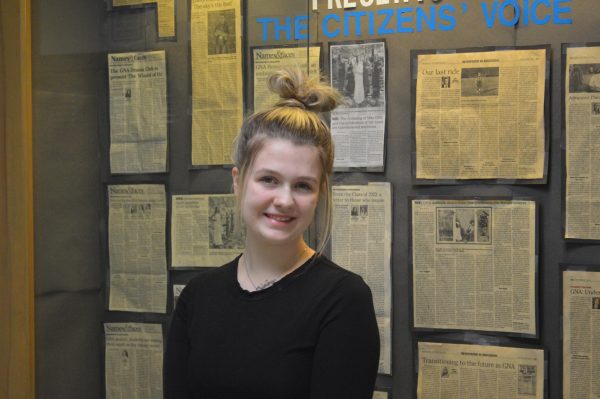Under a doctrine of prideful service
Members of the Interact Club participate in another of its charitable initiatives—the Empty Bowls Project.
In a world where we live, crisis—most often economic—is not uncommon. With approximately 12 percent of the American populace living in poverty as of 2017—that number rises to 14% in Luzerne County, according to the United States Census Bureau—opportunities for a sizable portion of the region’s residents are limited. Where government aid grants and programs are applicable, they often constitute the main dependency of unfortunate individuals’ stability of life; where such assistance is inadequate or nonexistent, the little money available becomes a lifeline. Paying bills and putting food on the table is, for many households and persons, a goal achievable with difficulty; amenities such as occasional out-of-home dining and Christmas presents are, if not unattainable, scarce.
This issue is one of many which the students and faculty at the Greater Nanticoke Area School District have taken note of. It is common for school districts across the country to participate in charitable humanitarian projects on both local and, in some cases, grander scales; Nanticoke is no different, and has, over its lengthy history, participated in a wide range of such initiatives. The school district is differentiated from many others, however, by the quantity of such projects taking place across its four schools and their participants’ wholehearted dedication to them, with various clubs gathering year-round and using the generosity of pupils in order to contribute to society on both domestic and international levels—an accomplishment which far from all educational facilities are capable of actualizing.
In charitability and activity, sparsely rivaled is the Interact Club, run by students of grades 9-12 in the district’s high school. A sponsored subset of the internationally famed Rotary Club (namely the Kingston affiliate thereof), the organization was founded in 2011 under the leadership of Irene Carey, the Rotary liaison of the club since its inception, and Richard Budnick, the district’s eighth grade English teacher who served as the club’s advisor until 2018; it has continuously promoted a variety of projects on local, national, and even global scales throughout its existence, following its mantra of “service above self.”
Among the club’s greatest undertakings is its annual canned food drive. Serving the Nanticoke Food Pantry at the city’s St. Faustina Parish, the Interact Club organizes each year a collective gathering of canned goods and non-perishables across three of the district’s schools, allowing individuals to express their generosity by bringing donations of such products into their schools. Following the project, the collected items are distributed to Nanticoke residents in need at the food pantry’s discretion. In the 2019 iteration of the event, upwards of 3,000 products were brought into homerooms by students, the vast majority of which were given by pupils in the Elementary Center and the newly-constructed Kennedy Early Childhood Center. The project is typically independently mirrored by the student council of Nanticoke’s Educational Center.
The club also annually hosts a Polio Walk at the school district’s football field in late April or early May, whereby participants—students and third parties alike (pets included)—partake in a leisurely walk around the field’s track in order to raise awareness of residents (and potential donors) about polio and its devastating effects on human life. A bake sale and a basket raffle are typically organized by the club as means of raising additional funds for the cause. The proceeds from the project are given towards furthering the development of effective polio vaccines in the three nations where the malady has not yet been eradicated (Afghanistan, Pakistan, and Nigeria), and are matched and doubled in accordance with an anti-polio pledge made by Bill Gates.
The third major event regularly held by the student organization is the Salvation Army Bell-Ringing, which occurs in the days leading up to Christmas every year. Charitable students stand in front of the Sanitary Bakery—a popular destination in the heart of Nanticoke—and ring bells in hour-long shifts in order to gain the attention of passersby and customers of the establishment. Funds obtained by the generosity of these individuals are collected in a small pot, and later donated (in no insignificant sums) to the Salvation Army; in 2018, the project raised upwards of $300.
To complement the aforementioned initiatives, the club holds and has held a variety of smaller programs over the last several years, including writing letters to orphaned children, cleaning up Nanticoke’s school district’s property (typically for Earth Day), and, in a 2019 debut, Rotary-aided involvement in the Rotoplast project, whereby Interact and its parent organization donate significant sums of money to fund surgeries for children whose speech and food consumption capabilities are severely limited due to a cleft lip or palate. In the situation of the latter, the funds for the project are being collected from donations made by faculty in all of Nanticoke’s schools.
The extensive list of community service projects enumerated above, while conducted almost entirely by the Interact Club alone (with the approval of school administrators), do involve contributors and assistance from all of Nanticoke’s educational facilities, from teachers to Dr. Ronald Grevera, the district’s superintendent, himself. It is owing to the latter that the Interact Club was able to obtain the finances necessary in order to move through with its participation in the Rotoplast project. This was accomplished by utilizing the money which teachers and other employees across the district pay every Friday to “dress down.” These funds are designated towards various projects and causes beneficial to students or the community, such as providing financial aid for pupils enrolled in Advanced Placement courses who are unable to fully finance the price of their end-of-the-year examination, or allowing economically disadvantaged households to receive children’s books gratis as part of Nanticoke’s Christmas Drive. In some more serious circumstances, the schools’ faculty has funded recuperatory aid to families whose residences have been damaged or destroyed by fire or otherwise. Contributions from two months’ worth of district-wide dress-downs have been allocated to the Rotoplast project at the designation of Dr. Grevera.
The superintendent has, additionally, authorized the lengthy yet excitedly awaited project of reconstructing the football field on Nanticoke’s school grounds. The $1 million initiative intends to achieve a greater measure of safety and quality on the field; the lighting systems which illuminate the area during events have been replaced, and the project includes a plan to add a turf as a means of decreasing injury risks for the athletes themselves. The football field (and, namely, the running track which surrounds it) will, following the project, be open to members of the public, providing residents of Nanticoke with a convenient location for exercise. The school district is, as of February 2019, in the process of collecting grant funds for future steps of the undertaking.
Heretofore, adults and students of higher grades conjointly organized the majority of the named events. The pupils of lower years, however, in addition to those teaching them, play no small role in the organization of charitable projects in the district—together with their older counterparts or otherwise—with one of the most universal of these initiatives being the CEO Produce Market. The market, held on a monthly basis at Nanticoke’s elementary school, allows for parents with children in the district to select fruits and vegetables for household consumption free of charge. The program is run in an effort to improve nutrition and appreciation for healthy diets among the younger generation, spurred by an increasingly alarming trend of excessive weight among millennials; it also allows for economically disadvantaged families to obtain an extra ingredient for their children’s meals without burdening themselves.
The efforts of elementary educators additionally include the abundance of projects organized by 5th-grade teacher Mrs. Lukowski. Her major works in previous years have included, for instance, the Jared Box project, whereby participants would collect shoeboxes and fill them with coloring supplies, books, etc. These boxes would later be sent to young patients of various hospitals as a means of providing them with emotional and material support. Furthermore, as part of a project sponsored by the United Way of Wyoming Valley, Mrs. Lukowski and her colleagues participate in the Day of Caring event, where 5th graders with developed behavioral skills but increased social or emotional needs clean the grounds of Nanticoke’s Mill Memorial Library for a day in May.
One of the largest of Mrs. Lukowski’s enterprises, however, consists of the entire district collectively writing letters to soldiers. Every year—typically around Christmas time—students from three of the four schools, from third grade to seniors of the high school, write and decorate letters and Christmas cards, addressing them en masse to soldiers stationed0987654 overseas. The letters and cards are, following their completion, shipped to military bases and encampments where the involved military is located, and the soldiers receive the letters near the holiday in order to remind them that, even though they are thousands of miles away from home, they are not forgotten, and their courage in playing a role on the battlefield is not unappreciated. While the exact destination countries and shipping locations of the letters are unknown (only Iraq has been specified as an associated nation in previous years), the project stretches around the globe and brightens the hearts of many separated from their families by duty.
Younger grades’ learning environments also provide for the general education and interaction capabilities of students via the Positive Behavior Intervention Support program, whereby families are invited to the affiliated school in order to discuss better social, behavioral, and scholarly strengths in students. The project, held primarily in the Kennedy Early Childhood Center, includes math and literacy nights, which focus on children improving their abilities in learning arithmetic and literature, respectively. Individuals from the high school have the added opportunity of participating in tutoring or emotional support for younger pupils after hours.
In the quantity, scope, and diversity of the projects which it organizes year to year, the Greater Nanticoke Area School District is little rivaled; for a city and student body of its comparatively small size, its communal dedication is unprecedented in its prevalence. With the extensive contributions of the members of the district’s “family”—be they the Interact Club and its leaders or the principals of the schools themselves—and the support of Nanticoke residents of all backgrounds and classes, the students of grades K-12 work ceaselessly and wholeheartedly to alleviate the socioeconomic hardships which are present in their society, united under a principle of “Trojan pride” and a doctrine of heartfelt service.
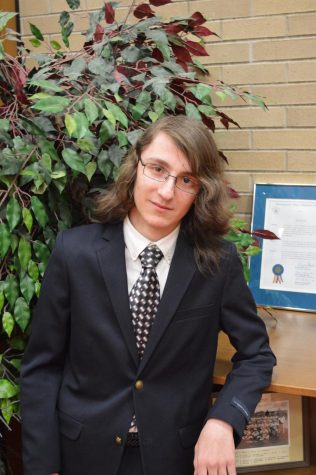
My name is Daniel Shevchenko, and I am a sophomore at the Greater Nanticoke Area High School. I have lived in Nanticoke for six years, having moved here...



